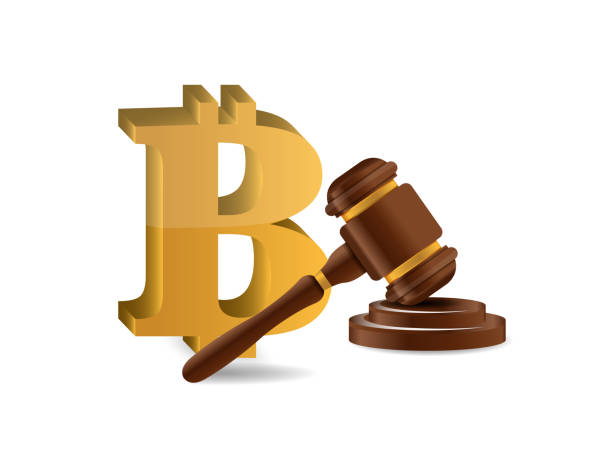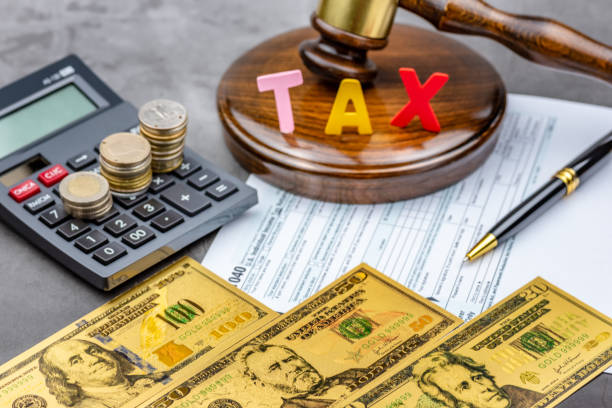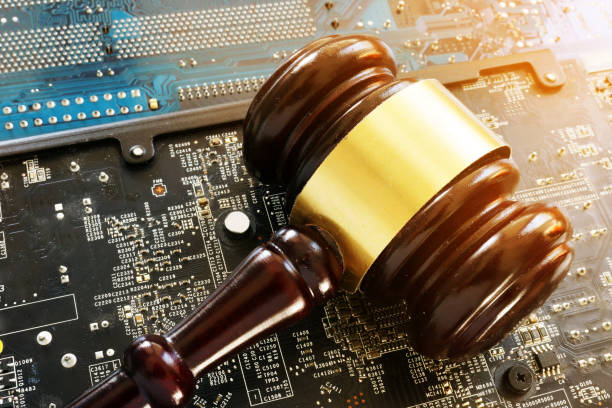Crypto crackdown is becoming the norm across the world with many governments, authorities, and regulators aiming to tame the currently ‘wild’ digital assets space. The latest country to join these crackdowns is the United States.
US financial authorities are now preparing to actively regulate the $1.5 trillion crypto market amid growing fears of inadequate oversight, according to the Financial Times reports.
These new efforts under the Joe Biden administration reflect a break from the Trump-era strategy. During the previous regime, cryptocurrency use within the financial system was encouraged sometimes. In some instances, the use of crypto was encouraged to ensure that the US is not left behind by its peers in the implementation and utilization of the nascent sector.
Michael Hsu, who was appointed early in May as the acting U.S. Comptroller of the Currency, told news outlets that he wants the United States officials to work as a team to design a “regulatory perimeter” for crypto.
Hsu recently testified at a congressional hearing saying that, after seeing fintechs create new payment processing tools, “it is hard not to feel some déjà vu” to the months and years preceding the 2008 financial crisis. According to him, the crypto crackdown will bring some sanity “to a large and less regulated shadow banking system.”
Inter-Agency Collaboration Needed For The Crypto Crackdown
The acting Comptroller of the Currency insists that greater inter-agency cooperation is crucial in setting up functional regulatory guidelines for the cryptocurrency industry. Hsu has encouraged regulatory agencies to cooperate with stakeholders to establish viable ‘regulatory parameters’ for the cryptos and digital assets.
In his interview with the Financial times, he mentioned that US authorities should take up a more active role in creating policies and regulating the crypto market. Additionally, they need to focus mainly on reducing the risks that are faced by the investors and consumers of the budding market. Hsu elaborated:
“It really comes down to coordinating across the agencies, just in talking to some of my peers; there is interest in coordinating a lot more of these things.”
Hsu also acknowledged that a successful meeting that featured an inter-agency and crypto-focused ‘sprint’ team happened a few weeks ago. The team that participated in this meeting consisted of representatives from the Federal Reserve, the Office of the Comptroller of Currency, and the Federal Deposit Insurance Corporation.
The acting U.S. Comptroller mentioned that the team was ‘small’ but ‘senior’. It is tasked with presenting viable ideas for the agencies to consider instead of formulating policies. Hsu focused on the importance of speed in growth and innovation that is possible in the cryptocurrency industry. Hence, an extensive crypto crackdown without involving the stakeholders might kill off a budding sector that has a lot of potential for growth.
He was also quick to say that failure to start acting as soon as possible would make it quite hard for the regulators to control the crypto industry in the future, adding:
“The idea is that time is of the essence, and if it’s too big that gets harder.”
Hsu is not the only person that thinks the US still lacks enough regulatory guidelines for digital assets. Gary Gensler, the US SEC chairman, said that there are ‘gaps’ in the cryptocurrency market under the ‘current system’ as he was speaking to the House Committee in April 2021.
SEC Chairman Gary Gensler Wants More Investor Protection For Crypto Markets
The new chairman of the Securities and Exchange Commission said on May 7, 2021, that more investor protections are necessary for the budding markets for all crypto assets. Gensler said on CNBC’s “Squawk Box” that he has noticed there is a massive attraction to bitcoin from the traders but regulation is necessary to avert fraud and other issues.
While talking about Bitcoin, he stated:
“It’s a digital, scarce store of value, but highly volatile. And there are investors that want to trade that, and trade that for its volatility, in some cases just because it is a lower correlation with other markets. I think that we need greater investor protection there.”
Gensler also thinks that bitcoin is a speculative store of value and the SEC needs to take a “technology-neutral” approach when it comes to innovations in markets. The crypto market boomed in late 2020 due to increased institutional adoption from some established companies like MicroStrategy and Tesla.
Previously, Gensler taught bitcoin and financial technology classes at the Massachusetts Institute of Technology (MIT). He has said in the past that there needs to be the authority for a regulator to oversee crypto exchanges, as is the case with the futures and equity markets. According to him, most of the coins trade like assets and need to fall under the purview of the SEC.
His sentiments indicate that he is in support of the crypto crackdown plans that the American authorities are setting up.
“To the extent that something is a security, the SEC has a lot of authority. And a lot of crypto tokens — I won’t call them cryptocurrencies for this moment — are indeed securities.”
The SEC chairman also commented on social media’s influence on the global financial markets:
“We need to update and freshen our rules to ensure that, while retail investors and any individual has First Amendment rights to speak and so forth, that they’re not misleading the public, they’re not manipulating the public, manipulating the markets.”
Gary noted that the United States Treasury Department had begun focusing majorly on anti-money laundering (AML). The regulator is also guarding against illegal activities in the digital sector. But, it needs more authority to implement a crypto crackdown to streamline the nascent sector to make it safe for all investors.
Biden Administration Targets Crypto Taxes
Reports have emerged indicating that the Biden administration wants to target cryptocurrency transfers in tax crackdown plan Proposal to help in closing the ‘tax gap’. If the new law gets implemented, all crypto transfers over $10,000 must be reported to the US tax authorities, the Internal Revenue Service (IRS).
President Biden aims to get a near $80 billion boost in funding for the IRS. These proposals come amid the tightening of regulatory environments and crypto crackdown across many jurisdictions. The US proposal was published just a day after China signaled a regulatory crypto crackdown aiming to gain some control on the decentralized market.
The United States unveiled the proposal as part of a wide set of proposals that aim at mitigating tax evasion incidents. These regulations and restrictions are pushing the price of bitcoin and the general crypto market lower with the flagship crypto struggling below $40,000.
On his part, the chair of the US Federal Reserve, Jay Powell, weighed in on cryptos saying:
“US authorities should be paying attention to private-sector payments innovators who are currently not within the traditional regulatory arrangements applied to banks, investment firms, and other financial intermediaries”
He focused on the financial operators offering stablecoins whose value is tied to the dollar, saying that they pose specific risks to the country’s financial stability. The US Treasury insisted:
“cryptocurrency pose a significant detection problem by facilitating illegal activity broadly including tax evasion.”
These sentiments were echoed by the European Central Bank, which said that cryptos have the potential to support many illegal activities without being traced.
Why The Crypto Market Needs Regulation
While a crypto crackdown on private currencies may kill all innovations in this budding space, virtual currencies need a regulatory infrastructure to protect the interest of investors.
Virtual currencies are not legal tenders backed by central banks or central governments. Many governments are taking calibrated positions on cryptocurrency with some leaving a window open for experiments in this space. But, the bans in India, China, and other countries are taking a huge toll on the market prices of most coins and digital assets.
There is some need for the classification of cryptos since they are not backed by anything. The crypto players also request the treatment of crypto assets in the same way as financial assets like equity, debt, or commodities. But without the right regulatory framework, all these developments will not happen which will delay the maturity of the crypto market.
The value of virtual assets is prone to manipulations and price volatility just like any other financial assets. In recent years, crypto prices have experienced massive fluctuations. For instance, Bitcoin surged from the March 2020 lows of below $4,000 to a peak above $64,000 in April 2021.
The chances of mis-selling the cryptocurrency assets are considerably high because investor awareness in this market is still considerably low. Regulators are planning for a crypto crackdown since there needs to be a disclosure of the assets, their performance, adoption, future projections, and risks that come with digital assets.
Some platforms in the US offer over 500 crypto assets for trading although there are thousands of crypto assets globally. Currently, investors only know about the top coins but little is known about thousands of the other lower cryptos. Hence, a regulatory framework is important to streamline the market.
Big risks exist that may make blockchain obsolete in the future due to massive technological changes. Given the speed of the many changes and disruptions, the value of cryptos or acquiring digital assets as a long-term investment needs this asset class to remain relevant. Thus, a crypto crackdown is necessary to create information infrastructure by involving knowledgeable individuals to steer the cryptocurrency market to its maturity.
Cybersecurity risks and hacks are possible in the crypto world as it has been done repeatedly. Cybercriminals manage to steal crypto funds since all investment and wealth in this space is stored virtually.
Hacking is a massive threat for banks and financial institutions worldwide. Even the most secured US Central bank, US Federal Reserve has encountered hundreds of cyber attacks in the past decade. A successful cyber attack results in losses for investors who put their money in the affected crypto platforms or assets.
Therefore, authorities in the US feel that it is time to put their feet down and initiate a strategic crypto crackdown to enable the nascent market to mature appropriately for mainstream adoption.












